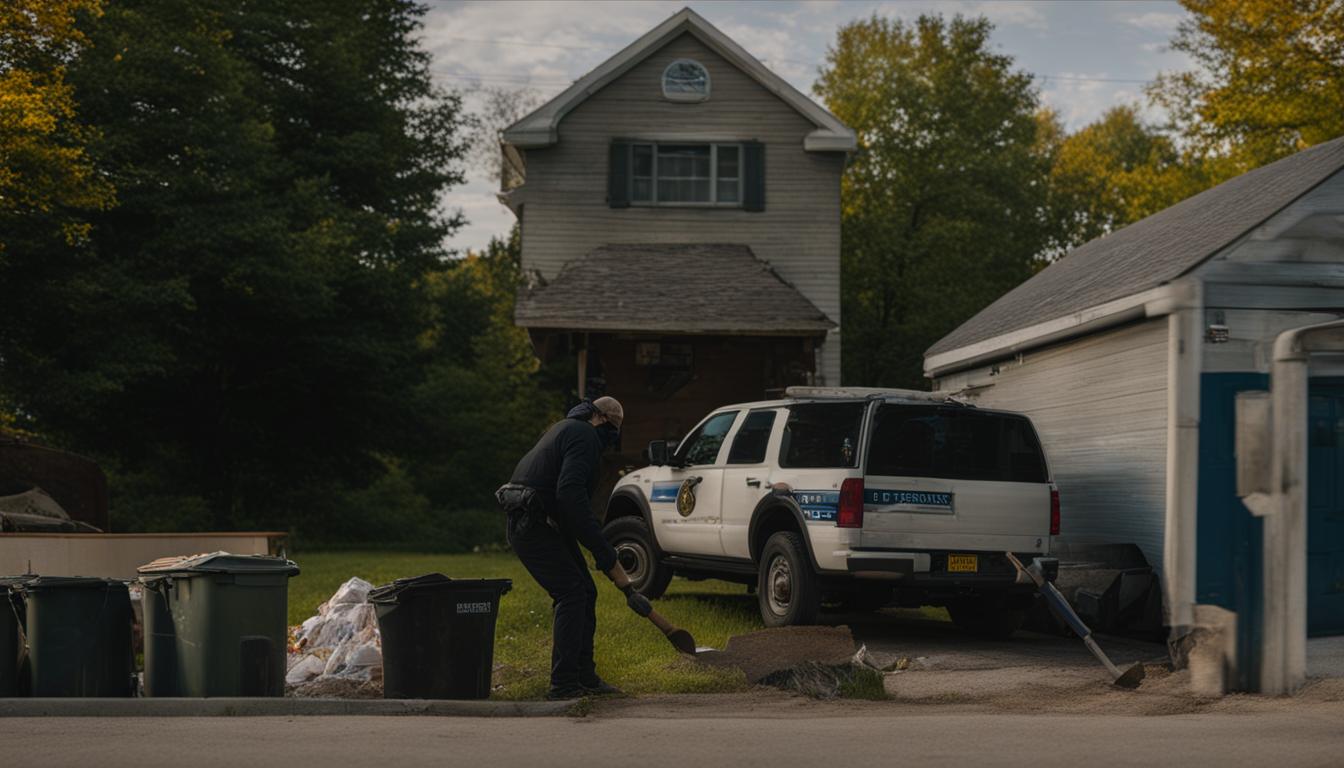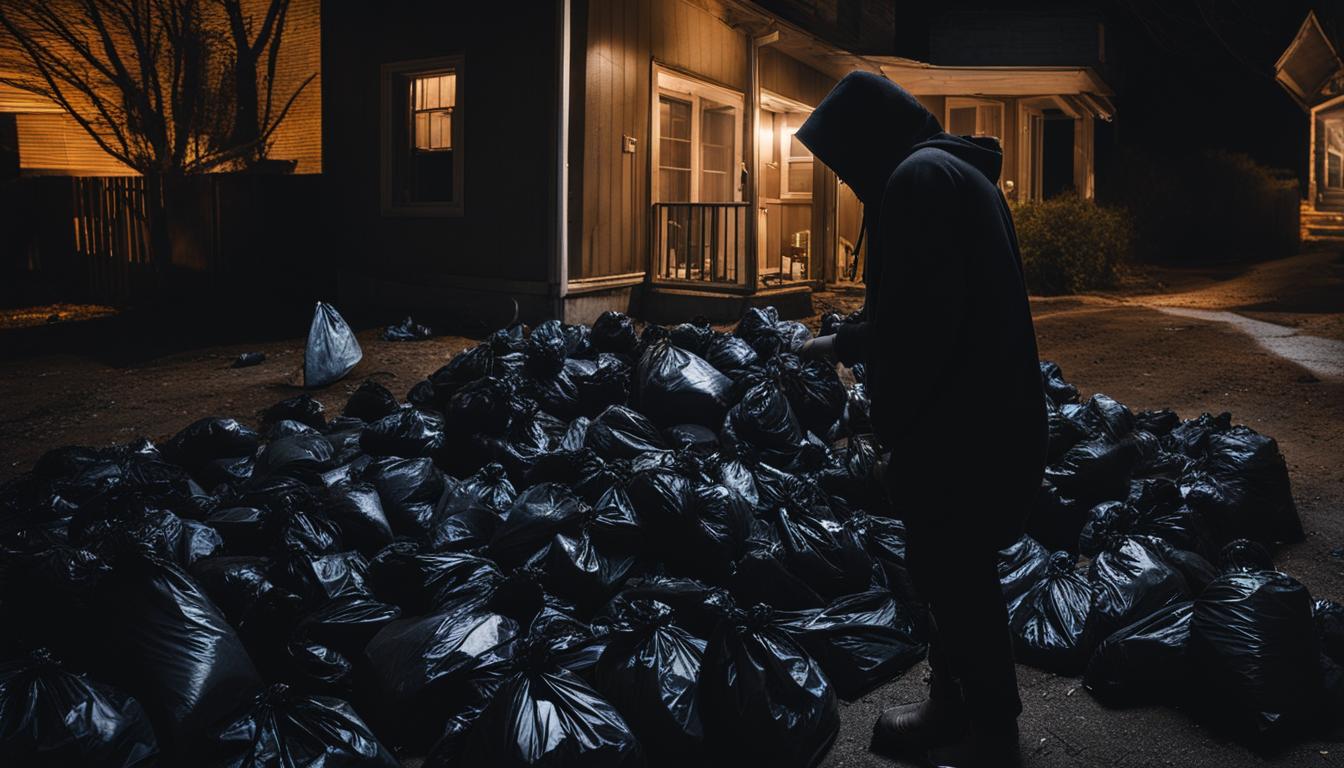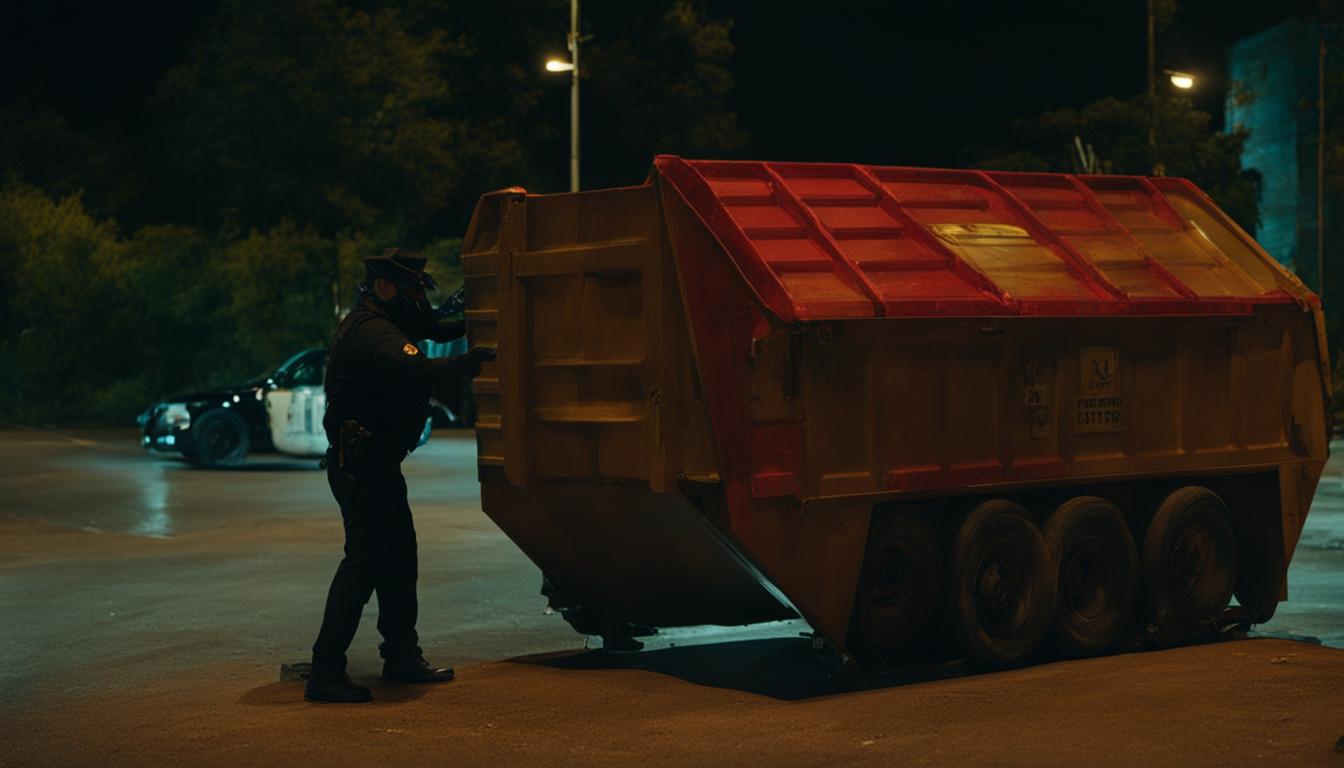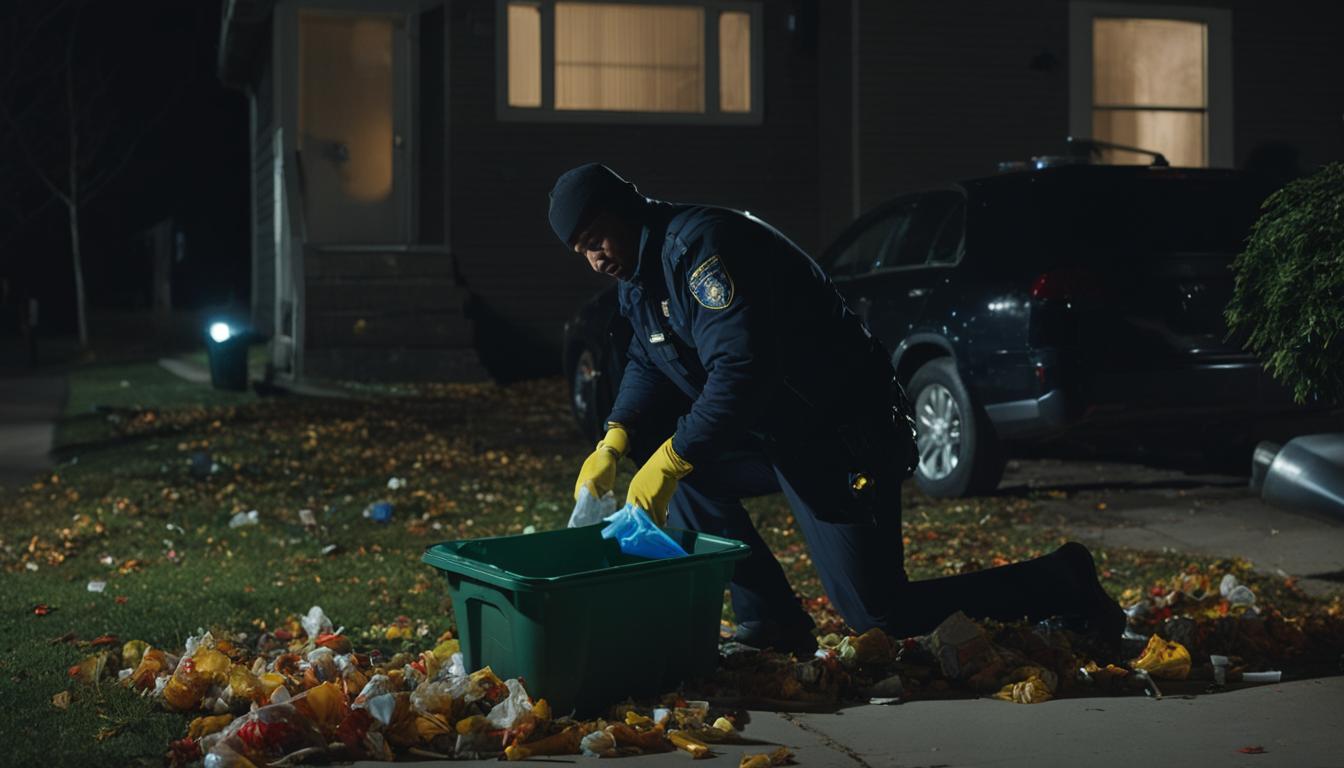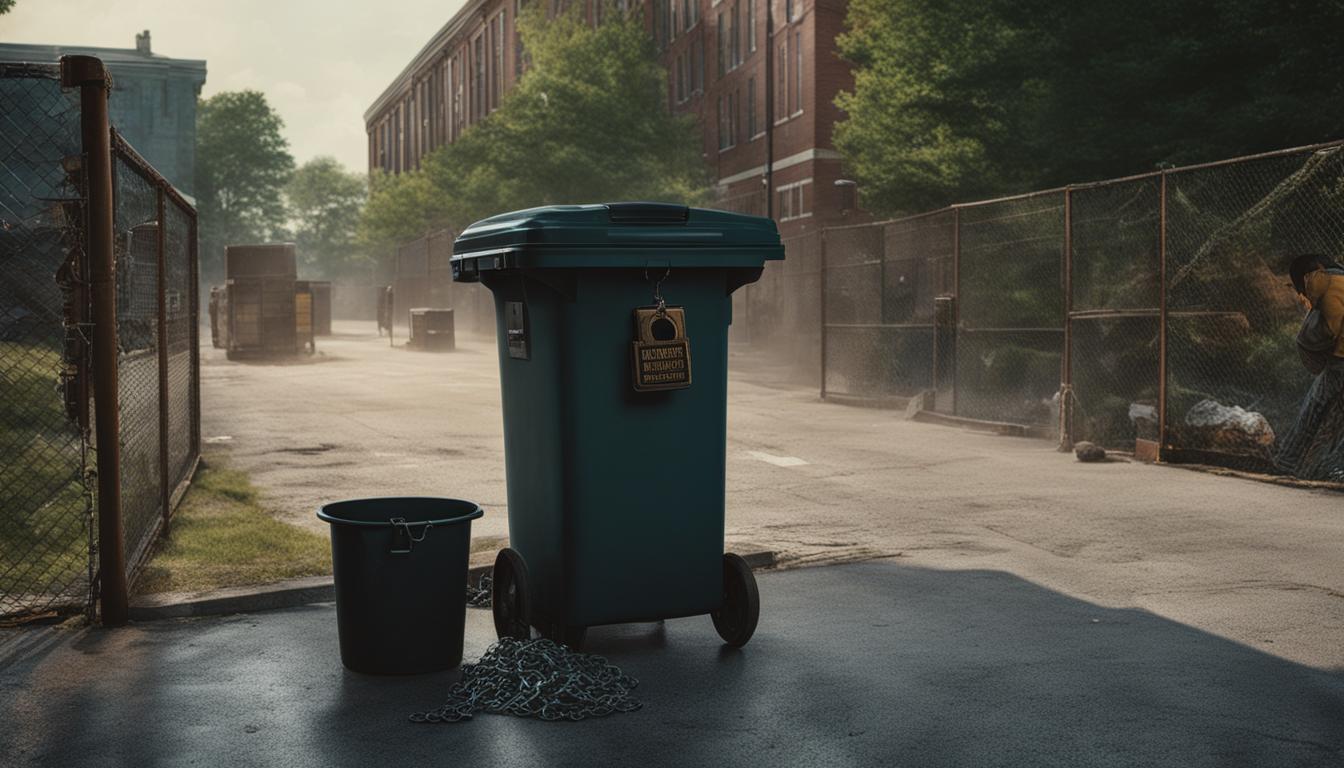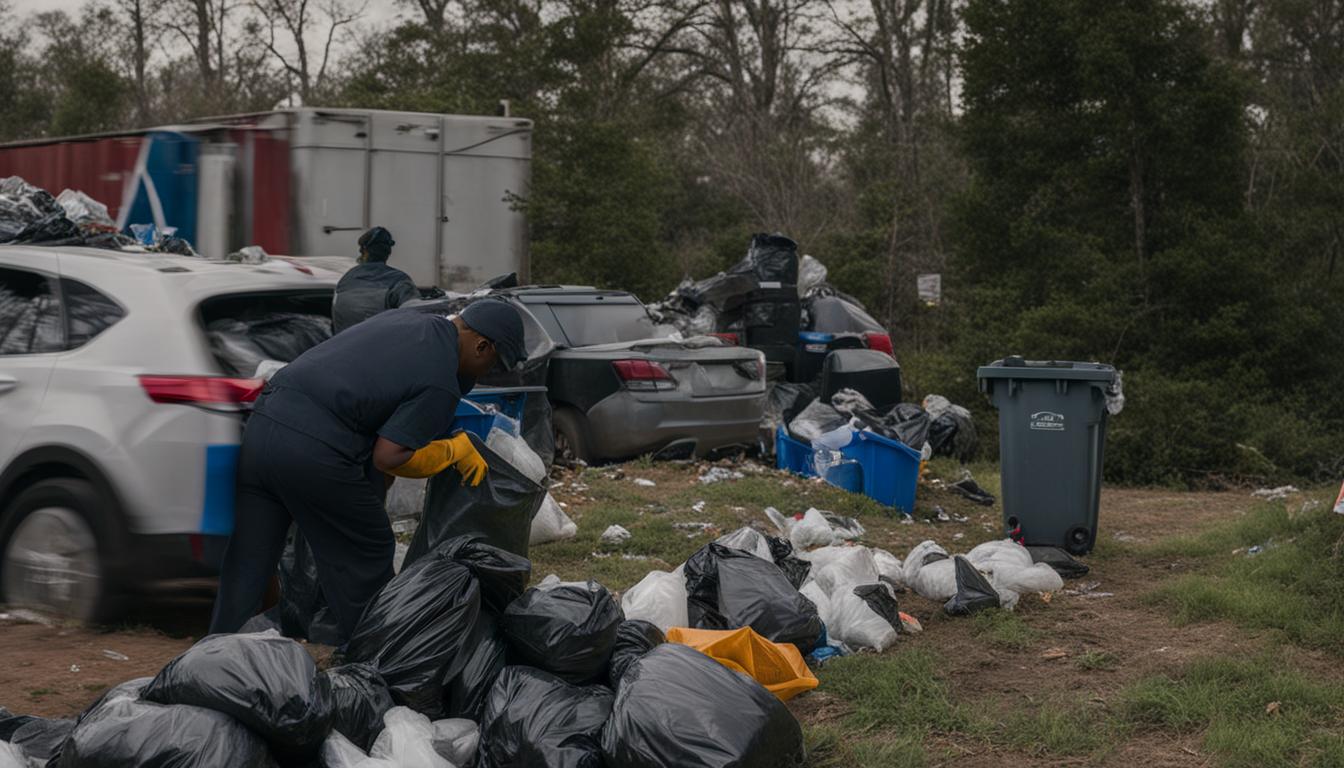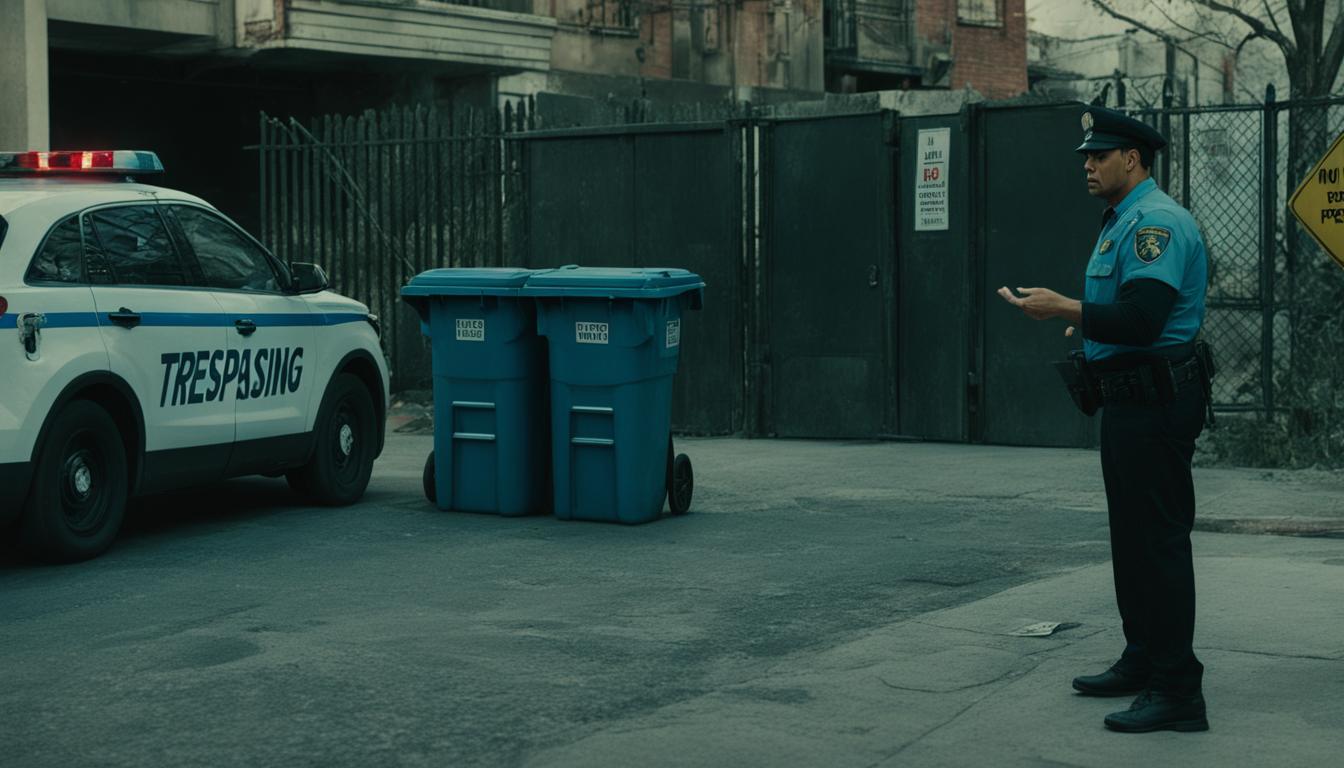Disclosure: This Post Contains Affiliate Links; We earn a commission on purchases.
In the state of Vermont, there are laws in place regarding the disposal of trash and the legality of going through someone else’s trash. If you’ve ever wondered about the rules surrounding dumpster diving and the consequences of improper trash disposal, this article will provide you with the answers you seek.
Firstly, it is important to note that in Vermont, it is illegal to throw, dump, or deposit any solid waste or refuse on lands or waters outside of a certified solid waste management facility, both for individuals and businesses. Violators can face civil penalties of up to $800, enforced by various authorities. Burning solid waste without the necessary permits is also prohibited and can lead to additional penalties such as community service or the revocation of licenses.
So what items are banned from disposal in Vermont? According to state law, there are several materials that cannot be thrown in the trash or landfills. These include lead-acid batteries, waste oil, large appliances, certain types of paint, tires, certain batteries, mercury-added products, electronic devices, mandated recyclables, leaf and yard debris, and food residuals. These materials must be properly disposed of or recycled through designated channels, and violating these restrictions can result in fines and penalties.
The dangers of trash burning in Vermont extend beyond legal consequences. Burning trash not only harms the environment but also poses serious health risks. The chemicals released during the burning process can increase the risk of various health problems, including heart disease, asthma, emphysema, headaches, and even cancer. Children are especially vulnerable to the pollution caused by burning trash. It is crucial to remember that burning trash is illegal in Vermont, and violators can face monetary fines, community service, and the suspension of licenses.
Illegal dumping and littering in Vermont also have severe consequences. Trash not properly disposed of poses threats to the environment, wildlife, and public health. Individuals caught dumping trash outside designated areas can face fines up to $500 and may be required to perform community cleanup. Failure to pay fines can result in the suspension of driving and hunting/fishing privileges. It is essential to dispose of trash responsibly to protect the environment and local communities.
To keep Vermont clean and prevent illegal dumping or burning of trash, there are steps individuals can take. These include not burning trash, avoiding dumping trash in unauthorized areas, reducing waste by buying products with less packaging, reusing durable items, and recycling materials like cardboard, newspapers, cans, and bottles. Proper waste management ensures a cleaner Vermont and a healthier environment.
Now, let’s address the legality of dumpster diving in Vermont. Dumpster diving, which involves searching through another person’s garbage, is generally considered legal as long as it does not involve trespassing or violating private property rights. Once trash is placed in a public area for pickup, it is considered public domain. However, diving into a dumpster located on private property or in an enclosed area without permission can be considered trespassing or theft. It is crucial to respect property rights and local ordinances regarding dumpster diving in Vermont.
Key Takeaways:
- In Vermont, it is illegal to improperly dispose of trash and refuse, with penalties including fines and community service.
- Materials such as lead-acid batteries, certain paints, and electronic devices are prohibited from being thrown in the trash and must be recycled or disposed of through designated channels.
- Burning trash in Vermont is illegal and poses health risks to individuals, especially children.
- Illegal dumping and littering can result in fines and the loss of driving and hunting/fishing privileges.
- Reponsible waste management, including recycling and reducing waste, is crucial for keeping Vermont clean and protecting the environment.
- Dumpster diving is generally legal in Vermont as long as it does not involve trespassing or violating private property rights.
- To prevent crimes related to dumpster diving, it is important to shred or destroy personal information before discarding it and properly secure dumpsters.
What Items are Banned from Disposal in Vermont
According to Vermont State Law, there are several materials that are prohibited from being disposed of in household trash or landfills. These include:
- Lead-acid batteries
- Waste oil
- Large appliances
- Oil-based and latex paint
- Tires
- Certain types of batteries
- Mercury-added products
- Electronic devices
- Mandated recyclables
- Leaf and yard debris
- Food residuals
These materials must be properly disposed of or recycled through designated channels. Violating these disposal restrictions can result in fines and penalties.
The Dangers of Trash Burning in Vermont
Burning trash in Vermont is not only harmful to the environment but also poses serious health risks. The chemicals released during trash burning can increase the risk of various health problems, including heart disease, asthma, emphysema, headaches, and even cancer. Children are especially vulnerable to the pollution caused by burning trash.
“Trash burning releases chemicals that can harm human health. The toxic compounds in burned trash can enter the respiratory system, causing respiratory problems, cardiovascular issues, and even cancer,” warns Dr. Emma Johnson, an environmental health specialist. “Children, in particular, are at a higher risk due to their developing immune systems and smaller lungs.”
These harmful effects result from the release of toxins such as particulate matter, dioxins, furans, and volatile organic compounds (VOCs) during the combustion process. The inhalation of these substances can have immediate and long-term health consequences.
“The improper burning of trash not only endangers human health but also pollutes the air we breathe and contributes to climate change,” emphasizes Vermont Department of Health spokesperson Sarah Thompson. “It is crucial for individuals to understand the health risks associated with trash burning and to find alternative methods of waste disposal.”
It’s important to note that burning trash is illegal in Vermont. The state enforces strict regulations to prevent illegal trash burning and protect public health. Violators can face monetary fines, community service, and the suspension of driving and hunting/fishing licenses.
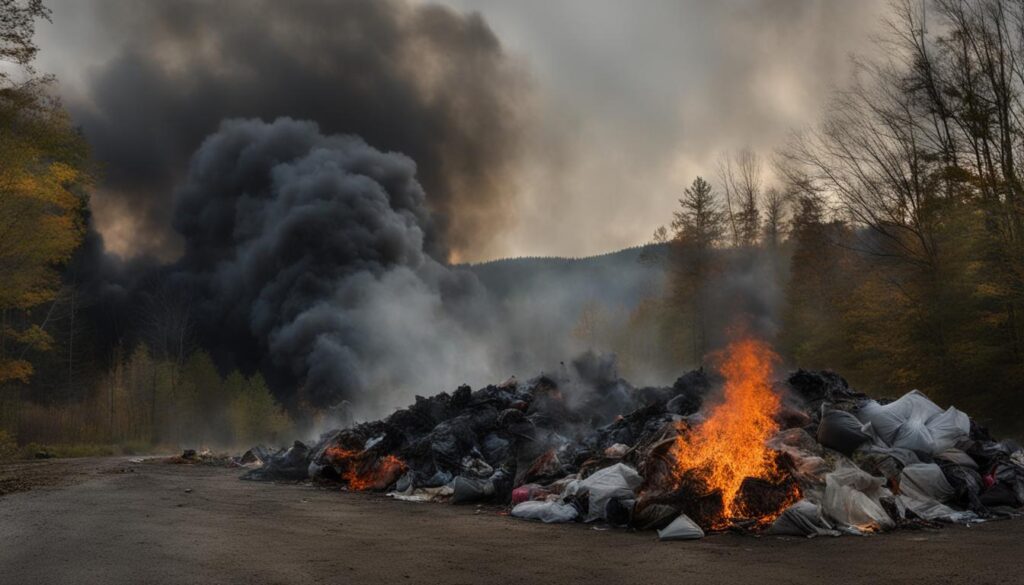
Consequences of Illegal Dumping and Littering in Vermont
Illegal dumping and littering in Vermont have severe consequences for the environment, wildlife, and public health. When trash is illegally dumped, it not only pollutes the land but also introduces harmful substances into water sources, posing a significant risk to both humans and animals.
Continued illegal dumping and littering contaminate the surrounding ecosystems, leading to the degradation of habitats and the destruction of wildlife. In addition, the accumulation of trash along roadsides and in natural areas creates an unsightly environment that diminishes the quality of life for residents and visitors alike.
To combat these issues, Vermont has implemented strict penalties for individuals caught illegally dumping or littering. Those found guilty of dumping trash on lands or waters outside of designated areas can face fines of up to $500. Moreover, offenders may be required to participate in community roadside cleanup programs, helping to rectify the damage caused by their actions.
“Littering is not just an eyesore; it also threatens the ecological balance of our beautiful state. We must all take responsibility for properly disposing of our waste to protect Vermont’s natural environment for future generations,” says Jane Smith, Environmental Enforcement Officer.
The Environmental Impact of Roadside Dumping
Roadside dumping, in particular, poses a significant threat to the environment. Besides littering the landscape, roadside garbage can contaminate nearby waterways, adversely impacting aquatic life and ecosystems. Hazardous materials and chemicals found in improperly discarded waste can seep into the soil and pollute groundwater, further exacerbating environmental degradation.
The table below illustrates the environmental impact of roadside dumping in Vermont:
| Environmental Impact | Effect |
|---|---|
| Water pollution | Contamination of streams, rivers, and lakes |
| Habitat destruction | Disruption of natural ecosystems and loss of biodiversity |
| Soil contamination | Leaching of harmful chemicals into the ground |
| Visual blight | Deterioration of scenic landscapes and negative impact on tourism |
Vermont’s commitment to preserving its natural beauty has prompted stringent enforcement of laws against illegal dumping and littering. By strictly penalizing offenders, the state aims to promote responsible waste management and protect the environment for present and future generations.
How to Keep Vermont Clean
Proper waste management is essential for maintaining a clean and sustainable environment in Vermont. By following these tips and adopting responsible waste management practices, individuals can make a significant difference in reducing waste and preventing illegal dumping or burning of trash.
Avoid Burning Trash
Burning trash not only contributes to air pollution but also poses health risks to individuals and the environment. Instead, opt for proper waste disposal methods that prioritize safety and protect public health.
Dispose of Trash Responsibly
Avoid dumping trash in roadside ditches, swamps, or open lands, as this not only harms the environment but also violates waste disposal regulations. Take advantage of local transfer stations or arrange for solid waste haulers to pick up your trash. By utilizing designated waste disposal channels, you can ensure that your waste is managed in the most environmentally friendly manner.
Reduce, Reuse, and Recycle
Reducing waste starts with conscious consumption. Consider buying products with less packaging and opting for durable items that can be reused multiple times. Recycling is an effective way to minimize the environmental impact of waste. Separate recyclable materials such as cardboard, newspapers, cans, and bottles and deposit them in the appropriate recycling bins.
Spreading Awareness
Increasing awareness about the dangers of burning trash and promoting responsible waste management practices is crucial. Encourage your friends, family, and community members to adopt eco-friendly habits and participate in recycling programs.
“Proper waste management is a collective responsibility that starts with individuals making conscious choices to reduce, reuse, and recycle.”
By implementing these waste management tips, everyone can contribute to keeping Vermont clean and preserving its natural beauty for future generations.
| Waste Management Tips | Benefits |
|---|---|
| Avoid burning trash | Reduces air pollution and health risks |
| Dispose of trash responsibly | Protects the environment and prevents violations |
| Reduce, reuse, and recycle | Minimizes waste and conserves resources |
| Spread awareness | Promotes responsible waste management practices |
Is Dumpster Diving Legal in Vermont?
Dumpster diving, which involves searching through another person’s garbage for discarded items, is generally considered legal in Vermont as long as it does not involve trespassing or violating private property rights. Once garbage is placed in a public area for pickup, it is considered to be in the public domain.
However, if a dumpster is located on private property or in an enclosed area, diving into it without permission can be considered trespassing or theft. It is important to respect property rights and local ordinances regarding dumpster diving in Vermont.
If you are interested in learning more about the legality of dumpster diving and the specific laws on dumpster diving in Vermont, please refer to the following resources:
- Official website of the State of Vermont: vermont.gov
- Vermont Department of Environmental Conservation: dec.vermont.gov
- Vermont Waste Management Division: dec.vermont.gov/waste-management
Always remember to exercise caution and abide by the law when engaging in dumpster diving activities. It is essential to respect people’s privacy and property rights while pursuing discarded treasures.
Dumpster Diving Laws in Vermont
| Aspect | Legality | Details |
|---|---|---|
| Trespassing | Illegal | Entering private property without permission to access dumpsters is considered trespassing. |
| Public Domain | Legal | Garbage placed in a public area for pickup is considered to be in the public domain and can be accessed without trespassing. |
| Enclosed Areas | Illegal | Accessing dumpsters located on private property or in enclosed areas without permission can be considered theft or trespassing. |
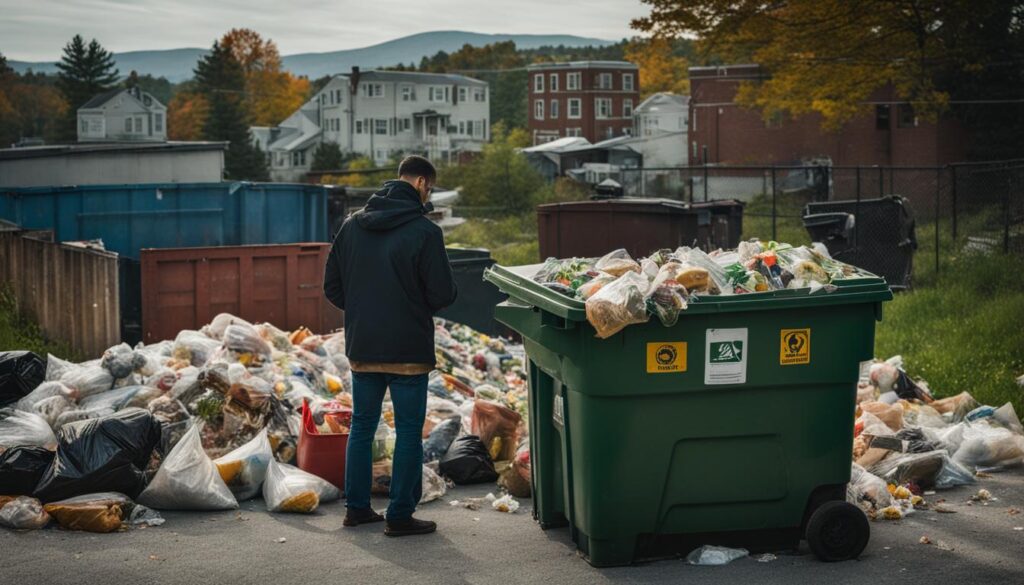
Preventing Dumpster Diving Crimes
While dumpster diving itself may not be illegal in Vermont, it is essential to protect against potential crimes that can arise from this activity, such as identity theft. The unauthorized use of personal information obtained from someone’s trash is illegal and can result in severe consequences, including fines, imprisonment, and civil damages.
To safeguard against dumpster diving crimes and protect your personal information, follow these preventive measures:
- Shred or Destroy Private Information: Before discarding any documents or materials containing personal or confidential information, ensure they are properly shredded or destroyed to make them unreadable.
- Dispose of Trash Responsibly: Take care to dispose of your trash responsibly, placing it in secure containers to prevent unauthorized access. Avoid leaving bags or containers of rubbish exposed or easily accessible in public areas.
- Minimize Personal Information in Trash: Be mindful not to discard any items containing personal information unnecessarily. Review documents before throwing them away, removing any sensitive data such as social security numbers, bank account details, or credit card information.
- Secure Business Dumpsters: Businesses should take additional precautions to protect themselves against dumpster diving crimes. Consider donating unsold items rather than discarding them and ensure dumpsters are properly secured to prevent unauthorized access.
By adopting these preventive measures, you can significantly reduce the risk of identity theft and other crimes associated with dumpster diving.
Dumpster diving laws may vary by state and locality, so it’s crucial to familiarize yourself with the specific regulations in your area to ensure compliance and protect against potential legal risks.
Remember, your trash can reveal sensitive information that can be exploited by criminals. Stay vigilant and take the necessary steps to safeguard your personal information.
| Preventive Measures | Benefits |
|---|---|
| Shred or Destroy Private Information | Prevents unauthorized access to personal data |
| Dispose of Trash Responsibly | Reduces the likelihood of dumpster diving incidents |
| Minimize Personal Information in Trash | Minimizes the risk of identity theft and fraud |
| Secure Business Dumpsters | Protects sensitive business information and customer data |
Conclusion
In summary, Vermont has strict laws regarding the disposal of trash and refuse. It is illegal to improperly dispose of waste through burning, dumping, or littering. Failure to comply with these laws can result in fines, community service, and the revocation of licenses. Proper waste management is essential for safeguarding the environment and public health, and it is crucial for individuals to understand their rights and responsibilities when it comes to trash disposal.
While dumpster diving is generally legal in Vermont, it is important to respect private property rights and avoid trespassing. Once trash is placed in a public area for pickup, it is considered part of the public domain. However, diving into dumpsters located on private property or in enclosed areas without permission can be considered trespassing or theft. It is crucial to be mindful of local ordinances and to conduct dumpster diving in a responsible and legal manner.
Additionally, individuals should take steps to prevent crimes associated with dumpster diving, such as identity theft. Properly disposing of personal and confidential information by shredding or destroying it before discarding can help protect against these risks. Businesses can also take measures, such as securing their dumpsters and donating unsold items, to prevent unauthorized access and minimize potential liability.
By understanding and adhering to the laws and guidelines surrounding trash disposal and dumpster diving, individuals can contribute to a cleaner environment and reduce the risks associated with improper waste management.
Source Links
- http://dec.vermont.gov/waste-management/solid/materials-mgmt/trash
- https://legislature.vermont.gov/statutes/section/24/061/02201
- https://www.legalmatch.com/law-library/article/is-dumpster-diving-illegal.html

Subscribe to Our Newsletter

